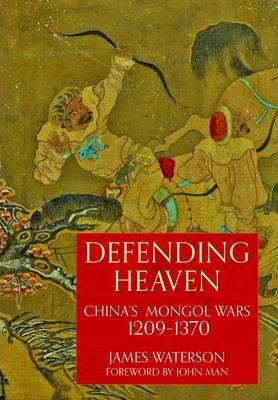|
Defending Heaven: China’s Mongol Wars 1209 - 1370
By James Waterson Published in June 2013 272 Pages Thibault’s Score: 4/5 Overall, I very much enjoyed this book. It is an incredibly informative read, however my lack of background knowledge about Chinese history didn’t make it as productive as it could have been. However, in terms of understanding Western history as well as the Mongols, this book could not have been any better. First, I was fascinated to learn that Chinese Song Dynasty in the Middle Ages had a fully formed state. One chapter in particular struck me: the government has well organized ministries and departments. One of these ministries deals with tea, the other with the acquisition of war horses for the army. These two departments were merged with the goal of facilitating the acquisition of horses. The scheme involved buying tea from peasants at below market rates then bartering using the tea with non-Chinese groups like the Tibetans for horses. What is fascinating is how modern this scheme sounds. It is unlike anything I have come across in my studies of European and Middle Eastern history during this period. China appears to have been a society governed by laws and officials more similar to ours than to the relationship-based lawless anarchy of medieval Europe. The Mongols, and the Mongol Yuan Dynasty, by contrast are far more similar to the more primitive forms of governance that I have encountered elsewhere. Waterson argues that the Chinese Song Dynasty had a fully formed state, while all subsequent dynasties until the 19th century reverted to feudalism. He blames long lasting Mongol influence for the destruction of China, and the subsequent long term stagnation of the nation. Waterson also insinuates that the anti-Yuan resistance was essentially proto communist, while the Mongols were mercantile capitalists. He also uses the Mongol invasions to make convincing explanations about the origins of various modern Chinese cultural flaws such as its xenophobia. Defending Heaven is mostly focused on military themes. Although the book is well written, clear, and has great nuggets, I wished it focused less on the military aspects of the conflict and more on the economic and social dimensions of the conflict. Overall, I enjoyed the read, and recommend it highly to anyone interested in studying Mongol history. However, I personally found it difficult to follow due to my lack of background knowledge about medieval China.
0 Comments
Leave a Reply. |
Thibault SerletMost of my articles are book reviews, but I also write about many other topics. Archives
December 2023
Categories |

 RSS Feed
RSS Feed